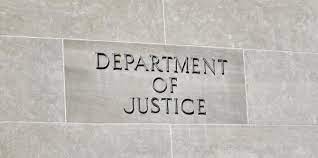DOJ’s Latest Opinion Release Underscores Absence of Corrupt Intent and Lack of Business Purpose

The Justice Department has had a slow year in FCPA enforcement (another profound grasp of the obvious). The reasons for this may be a question of timing elements in the pipeline of cases. What is clear is that pushing through an enforcement action and settlement requires increased coordination with a growing number of international partners. That may be part of the explanation.
In this environment, when DOJ’s FCPA enforcement record is relatively slow, there are other sources for monitoring DOJ’s approach to FCPA issues — individual enforcement actions, opinion releases and compliance enforcement programs. When considered in this light, DOJ has been busy setting forth a new enforcement program, emphasizing voluntary disclosure, adopting new requirements related to claw backs and disincentives, and ephemeral messaging communications. In other words, there is always work to do and issues to stay abreast of when it comes to FCPA enforcement and compliance.
As part of the logistical support, the U.S. company has to make stipend payments to foreign officials who attend training events. The stipends are intended to cover the costs for meals that are not served during the training event, along with driving mileage costs for certain participants. To execute these payments, the U.S. company proposes to pay certain stipend amounts to a United States Government Officer (“U.S. Officer”), which the U.S. Officer will deliver to the foreign officials.
The U.S. company’s application included the following representations concerning the process:

- The stipends are authorized by a particular a United States law, the Foreign Assistance Act of 1961.
- The stipend payments have been approved, or have been determined and set, by the U.S. Government, in accordance with the Department of State’s Meals and Incidental Expenses (“M&IE”) rates, or (ii) otherwise dictated by the U.S. Embassy in a particular country, based on that country’s internal per diem rate.
- The U.S. company stipend payments are between $8 and $40 per day, depending on the location of the training event.
- The U.S. company maintains accounting records to document the payments, its costs, and any associated cash transactions, which are provided to the Agency.
- The U.S. company received its task order, which calls for the at-issue payments, via a competitive selection process operated by the U.S. Government. Further, the U.S. company did not know the identities of any foreign officials when it submitted its proposal.
- The U.S. company will not pay any funds to foreign officials directly but will instead provide currency only to the relevant U.S. Officer, who will then remit the amounts to the foreign officials directly.
DOJ’s indication that it would not prosecute the U.S. company for violating the FCPA, assuming these facts are true, hinges on (1) the absence of corrupt intent; and (2) the failure to meet the “business purpose” test of the FCPA.
The FCPA prohibits the corrupt giving or offering anything of value to a “foreign official” to assist “in obtaining or retaining business for or with, or directing any business to, any person.” 15 U.S.C. § 78dd-2(a)(1). The term “corruptly” means an intent or desire to wrongfully influence the recipient. The “business purpose” test of the FCPA is met where the purpose of the payment or offer is to assist in obtaining and retaining business.
DOJ specifically cited the U.S. company’s absence of corrupt intent because the payments are authorized by the Foreign Assistance Act, and the fact that the payments are not being made for the purpose of obtaining or retaining business. As noted the payments to the foreign officials are both “called-for” and “ultimately delivered” by U.S. agencies through government personnel.

In support of its determination, DOJ cited a number of prior Opinion Releases in which it approved proposed payments that were not made for the purpose of obtaining or retaining business. See, e.g., FCPA Opinion Release 22-01 (proposed payment sought release of requesting party’s maritime vessel, captain, and crew, who had inadvertently entered a country’s waters and were subsequently detained, resulting in significant risk to life and well-being); FCPA Opinion Release 04-04 (company proposed to fund “Study Tour” of foreign officials, where the requesting company, among other things, (i) did not select the particular foreign officials who would participate, (ii) was not aware of any pending or anticipated business in the foreign country or with the foreign government, and (iii) intended to pay travel costs directly to third-party providers or to reimburse costs only upon presentation of a receipt); FCPA Opinion Release 04-03 (law firm proposed to sponsor trip for officials of a ministry of the People’s Republic of China to meet with U.S. public-sector officials, where the law firm, inter alia, (i) had no business before the entities that might send officials on the visit, (ii) did not select the particular officials who would be invited, and (iii) did not pay any funds directly to the government officials, but rather paid them to third-party providers).















